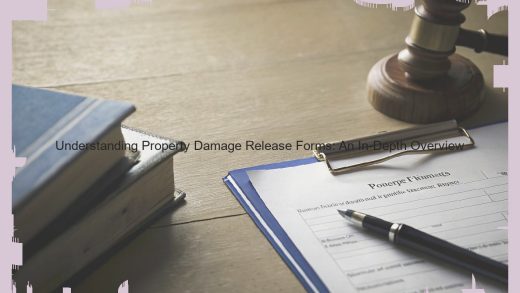The Ins and Outs of Legal Aid in Central Islip
Legal assistance can be incredibly important to low-income residents. It ensures that those who cannot afford an attorney can navigate legal processes and receive the representation that they need. Legal aid is a free or low-cost legal advice service provided by a professional, such as a licensed attorney. Nonprofit groups often operate these services to assist individuals who would otherwise be unable to hire legal counsel.
Legal aid can be vital to both individuals and families. It’s used in a number of different circumstances, including:
Legal aid is typically provided for a limited range of areas, such as criminal law, family law, and mental health law. In selecting legal advisers, the following factors will be evaluated to determine a resident’s need for aid:
Legal aid services are offered in Central Islip managed by the Suffolk County Bar Association. The Suffolk County Bar Association has offered free legal clinics for low-income residents within the county since 1948. Today , it’s their goal to ensure that no resident in need of legal advice is denied counsel due to their financial ability.
The following shows some of the legal services covered through the free legal clinics managed by the Suffolk County Bar Association:
If you’re in need of legal assistance in Central Islip, you have several options to receive aid. You can contact the following services to apply for free legal assistance through the Suffolk County Bar Association:
Many other nonprofit organizations provide legal assistance and gain funding through the Suffolk County Bar Association. To find additional resources and follow listings of attorneys who offer pro bono legal assistance, visit Discover Long Island. Here you will find a full listing of legal services available to low-income residents in the Central Islip area.
Forms of Legal Aid Services
Legal aid services cater to a wide array of legal issues in Central Islip. As well as services offered through law schools that offer legal aid, the Community Development Corporation of Long Island also provides legal counsel to low and moderate income people who may be board members or employees of not-for-profit organizations. Seniors who qualify for legal aid can receive assistance with preparation documents for estate planning, guardianships and a variety of other matters. Legal aid societies give assistance with housing issues such as eviction, landlord-tenant disputes, and foreclosure proceedings. The types of legal aid services can also include screening for services, referrals to pro bono programs, self-help legal services, assistance for persons who are deaf, domestic violence legal assistance and legal services for crime victims. Veterans are able to access specialized help with any legal problem free of charge, including claims before the U.S. Department of Veterans Affairs, criminal record expungement and support for discharge upgrades. Legal aid services also include representation for the elderly, with particular segments of the elderly being served such as the frail and homebound. Other services include work incentives advice and representation for social security disability applicants. Family law cases comprise a large portion of the services offered by legal aid agencies. This includes matters such as child abuse cases, domestic violence cases, divorce and separation, custody, child support and juvenile delinquency. Immigration and naturalization services include general advice and counsel for applicants of citizenship and visas. Legal aid services also provide assistance for clients with language barriers through interpreters, translators, assistive devices for blindness and speech disabilities and hearing aids.
How to Qualify for Legal Aid
The first step to obtaining legal aid services in Central Islip is determining whether or not you qualify. Typically, the legal aid services available are reserved for citizens, green card holders and long-time residents; however you can reach out to your local legal aid office if you are an undocumented immigrant, as some may be able to help you.
To qualify for legal aid services, you must be indigent, meaning you are in need, or poor. For example, in order to qualify for free civil legal aid, or subsidies, your financial status will likely be taken into consideration.
Among other sources, the Justice for All.org FAQ’s page acknowledges this by stating, "Many legal aid offices are limited to people with very low income, often at or below 125% of the Federal Poverty Guidelines."
So, a good rule of thumb is to be prepared to potentially provide documentation serving as proof you’ve met the federal poverty guidelines, i.e. proof of income and other income resources, monthly expenses, amount of money in checking, savings and mutual funds, etc.
In New York, if you need legal assistance in a civil matter, free legal services are only available if you are unable to afford them, and even those in need may be turned away if there is not a new opening. According to access to justice page on Legal Aid NYC, on average, there is one legal aid attorney helping for every 9,000 individuals. But sadly, the demand for legal aid is particularly high in New York.
Aside from income, your case type, or what kind of matter it is, will also be considered. In fact, the Legal Aid Society provides a list specifying which cases they cover. Generally speaking, cases that would fall under a legal aid society’s general jurisdiction include the following:
These are not the only factors that may be used to determine whether or not you are eligible for civil legal aid services. There are other factors that may be taken into consideration, and because the eligibility requirements may differ from nonprofit organization to nonprofit organization, make it a point to contact your local legal aid services and inquire about their specific requirements for qualification.
Locating Legal Aid Providers in Central Islip
Legal aid providers are there to help anyone who can’t afford to get help from commercial lawyers. As legal aid is support that the UK government provides, there is no shame in asking for help if you need it. There are solicitors and other people who can help you to overcome the legal issues that you are facing. There are far more legal aid providers across the country than people know, and finding one who is suitable for your particular set of requirements may seem overwhelming. However, this is not going to be the case once you know how you can search for them.
There are many millions of people across the country who are entitled to legal aid, and who may find a legal aid provider that suits them. Northern Ireland has the largest proportion (19%), with Scotland (8%) not far behind that number. England and Wales have the lowest proportions (4% and 3% respectively) but this just goes to show that there are plenty of providers to help a wide variety of people.
The internet is an extremely useful tool that can help you to find the legal aid providers that are in your area. If you search for "legal aid providers" + (your area) , you will potentially find all of the local organizations that offer legal aid services. However, you can use the official LawWorks Directory to search for pro bono advice services, or ask a legal professional on which local organization would be best suited to help you. Solicitors and barristers need to do years of training to get where they are, so do not be afraid to ask them to point you in the right direction.
It is also a good idea to check out which legal aid services are available online, as some measures have grown as a result of the pandemic and will continue to remain available. A great example of these services is online court hearings, so you won’t even need to go anywhere in order to find the legal aid provider that you need.
Having legal aid will not affect your finances in any other way. If you received legal aid at some point in the past when it was rightfully given, then it will not affect your ability to apply for housing benefits, which takes into account your savings and income.
What to Anticipate During a Legal Aid Consultation
At the initial meeting, be prepared to provide your contact information and the type of legal advice or representation that you may be seeking. For example: Do you need a temporary restraining order? Are you seeking a divorce? Do you have questions regarding custody of a child or visitation rights? The County may ask you to complete an application to determine financial eligibility.
When you meet with the attorney, be prepared to answer questions regarding your case. Write down the questions you wish to ask during your meeting with the attorney so that you are able to obtain answers to those questions and gather as much information as possible. Be prepared to answer questions about your finances, assets, debts and family situation. The County or the Legal Aid Society may request additional information or documents.
If you believe you cannot afford an attorney but you have an income above the County’s limits for free legal services, ask if you can have a court-appointed attorney (a private attorney who the court appoints to represent you for no cost).
At the end of the meeting, take notes of the questions you still may have and bring them back to your next meeting with your attorney. Be clear about the next steps or actions required for your case. That way, you can be better prepared for what comes next.
Legal Aid Success Stories In Central Islip
There are countless stories of resilience and tenacity among the residents of Central Islip who have benefitted from the services of legal aid organizations. One such example is that of Maria Gonzalez, a single mother of three who faced deportation proceedings after being arrested in a local police raid. With no formal immigration status, Maria was in danger of being separated from her children and deported back to her home country. Legal aid teams from the agency Long Island Advocacy Center (L.I.A.C.), were able to successfully argue that due to the extreme hardship that her children would face if they were forced to live without their mother, Maria should be offered asylum in the United States to keep her family together.
Another resident , John Smith, was facing foreclosure of his home due to an inability to keep up with mortgage payments as a result of an extended illness. After contacting the non-profit organization Legal Services of Eastern New York (LSENY), it was determined that Mr. Smith’s loan payments should have been recalculated once he became unable to pay. Legal aid attorneys at LSENY were able to negotiate with the bank and arrange a modified payment plan for Mr. Smith that allowed him to remain in his home while he caught up on his loan.
Residents looking for an advocate in times of trouble can rest assured they have many avenues available to them when seeking legal assistance.



